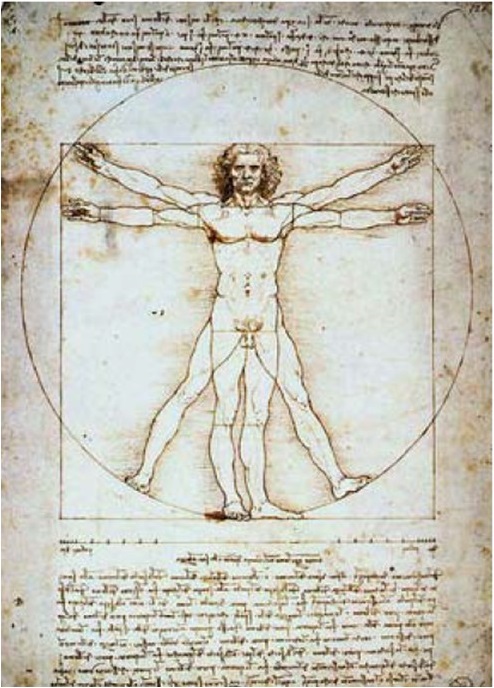ANATOMÍA DE LA DEGLUCIÓN. USO EN LA INTERPRETACIÓN DE PRUEBAS DIAGNÓSTICAS
ANATOMY OF SWALLOWING. USE IN THE INTERPRETATION OF EVIDENCE DIAGNOSTIC
Palabras clave:
Deglución; cinedeglución; evaluación; FEES (es)Swallowing; evaluation; videofluorsocopy; FEES (en)
Descargas
La deglución es un evento complejo que requiere de la interacción coordinada de estructuras anatómicas musculares y nerviosas para lograr el fin de la alimentación y la nutrición. Su estudio es de gran importancia, ya que la determinación de una alteración implica un impacto en la calidad de vida. El asertividad de un diagnóstico en las pruebas objetivas requiere de habilidades de observación y métodos de interpretación que le confieran su grado de objetividad. En el presente artículo se describirán las herramientas de interpretación usadas en dos de los estudios de deglución más utilizados en el ámbito clínico y el uso de la descripción anatómica en relación con la función.
Swallowing is a complex function that requires the coordinated interaction of muscular and nervous anatomical structures to achieve the end of feeding and nutrition. The study of it is of great importance since the determination of an alteration implies an impact on the quality of life. The assertiveness of a diagnosis in objective tests requires of observation skills and interpretation methods that give it its degree of objectivity. This article will describe the interpretation tools used in two of the most widely used swallowing studies in the clinical setting, and the use of the anatomical description in relation to function.
Referencias
REFERENCIAS BIBLIOGRÁFICAS
Agudelo, L. H. L. (2010). Prevalencia de disfagia en unidad de cuidados especiales. Revista CES MEDICINA, 24(2). http://www.scielo.org.co/pdf/cesm/v24n2/v24n2a03.pdf
Anatomía de Gray para Estudiantes - Drake (1a Edición, 2005).pdf. (n.d.).
Baijens, L. W. J., Speyer, R., Pilz, W., & Roodenburg, N. (2014). FEES protocol derived estimates of sensitivity: Aspiration in dysphagic patients. Dysphagia, 29(5), 583–590. https://doi.org/10.1007/s00455-014-9549-2
Bonilha, H. S., Huda, W., Wilmskoetter, J., Martin-Harris, B., & Tipnis, S. V. (2019). Radiation Risks to Adult Patients Undergoing Modified Barium Swallow Studies. Dysphagia, 34(6), 922–929. https://doi.org/10.1007/s00455-019-09993-w
Castañeda Maldonado, J. I. M. A., & Suárez Velázquez, A. M. (2019). Prevalencia de la disfagia secundaria al tratamiento de cáncer de cabeza y cuello. Areté, 19(1). https://doi.org/10.33881/1657-2513.art.19104
Fakhry, N., Rossi, M.-E., & Reyre, A. (2014). Anatomía descriptiva, radiológica y endoscópica de la faringe. EMC - Otorrinolaringología, 43(3), 1–15. https://doi.org/10.1016/s1632-3475(14)68303-x
France, K., & France, K. (2008). Physiologically Based Evaluation Worksheet for Interpretation of the Videofluorographic Swallowing Study Physiologically Based Evaluation Worksheet for Interpretation of the Videofluorographic Swallowing Study.
Garcia- Porrero. Hurlé. (2015). Neuroanatomía Humana (Issue Cap 16). Panamericana. https://doi.org/10.1016/j.anorl.2013.09.006
Jin A Yoon, Sang Hun Kim, Myung Hun Jang, S.-D. K. (2019). Correlations between aspration and pharyngeal residue scale scores for fiberoptic endoscopic evaluation and videofluoroscopy.pdf. Yonsei Medical Journal.
Lang, I. M. (n.d.). Brain Stem Control of the Phases of Swallowing. https://doi.org/10.1007/s00455-009-9211-6
Levine, M. S., & Rubesin, S. E. (2017). History and Evolution of the Barium Swallow for Evaluation of the Pharynx and Esophagus. Dysphagia, 32(1), 55–72. https://doi.org/10.1007/s00455-016-9774-y
Ligia, D., & Plasencia, M. M. (2009). Disfagia en paciente con enfermedad cerebrovascular: actualización. Medisur, 7(1), 36-43–43.
Logemann Jery. (1983). Evaluation and treatment of swallowing disorders. https://doi.org/10.1017/CBO9781107415324.004
Low Radiation Risks from Videofluoroscopic Swallow Studies (Adults) - Swallow Study : Swallow Study. (n.d.). Retrieved July 16, 2020, from https://swallowstudy.com/low-radiation-risks-from-videofluoroscopic-swallow-studies/
Martin-Harris, B., & Jones, B. (2009). The videofluorographic swallowing study. Otorinolaringologia, 59(1), 19–29. https://doi.org/10.1016/j.pmr.2008.06.004.
Montoya, C., Acosta, F., Cuervo, C., & Mejía, M. M. (2010). Cinerradiología de la deglución: cómo, cuándo y por qué. Rev. Colomb. Radiol, 3036–3044.
Moore K, Dalley A, A. A. (n.d.). Anatomía con orientación clínica.
Neubauer, P. D., Hersey, D. P., Steven, •, & Leder, B. (n.d.). Pharyngeal Residue Severity Rating Scales Based on Fiberoptic Endoscopic Evaluation of Swallowing: A Systematic Review. Dysphagia, 31. https://doi.org/10.1007/s00455-015-9682-6
Neubauer, P. D., Rademaker, A. W., & Leder, S. B. (2015). The Yale Pharyngeal Residue Severity Rating Scale: An Anatomically Defined and Image-Based Tool. Dysphagia, 30(5), 521–528. https://doi.org/10.1007/s00455-015-9631-4
Rosenbek, John C. Robins, Anne. Roeker, E. (1996). A Penetration- Aspiration Scale. Dysphagia, 11, 93–98.
Tasa de cuadros de videofluoroscopia - Laboratorio de investigación de rehabilitación para la deglución. (n.d.). Retrieved July 16, 2020, from https://steeleswallowinglab.ca/srrl/best-practice/videofluoroscopy-frame-rate/
Wooi, M., Scott, A., & Perry, A. (2001). Teaching speech pathology students the interpretation of Videofluoroscopic Swallowing Studies. Dysphagia, 16(1), 32–39. https://doi.org/10.1007/s004550000040
Cómo citar
APA
ACM
ACS
ABNT
Chicago
Harvard
IEEE
MLA
Turabian
Vancouver
Descargar cita
Visitas a la página del resumen del artículo
Descargas
Licencia
Derechos de autor 2022 Andrea Marcela Suárez Velásquez

Esta obra está bajo una licencia internacional Creative Commons Atribución 4.0.
Derechos de autor reservados












